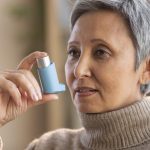Causes of STD
STDs, or sexually transmitted infections, can have a variety of causes. Some of the most common causes of STDs include:
Bacteria: STDs such as chlamydia, gonorrhea, and syphilis are caused by bacteria that can be transmitted through sexual contact.
Viruses: Viral infections such as herpes, genital warts, and HIV can also be transmitted through sexual contact.
Parasites: Certain parasites, such as trichomonas, can also be transmitted through sexual contact and cause STDs.
Unprotected sex: Engaging in sexual activity without using a condom or other barrier method can increase the risk of contracting an STD.
Multiple partners: Having sexual contact with multiple partners can also increase the risk of contracting an STD.
Sharing needles: Using shared needles to inject drugs can also increase the risk of contracting certain STDs, such as HIV.
Mother-to-child transmission: Some STDs, such as HIV and syphilis, can be transmitted from an infected mother to her baby during pregnancy, childbirth, or breastfeeding.
It’s important to note that anyone can contract an STD, regardless of age, gender, sexual orientation, or socioeconomic status. However, practicing safe sex and getting tested regularly can help prevent the spread of STDs and protect your health.
Common Symptoms of STD
The symptoms of an STD can vary depending on the type of infection and can also be different from person to person. In some cases, people with STDs may not experience any symptoms at all. However, some common symptoms of STDs include:
- Pain or discomfort during urination
- Abnormal discharge from the penis, vagina, or anus
- Genital itching or irritation
- Pain or discomfort during sex
- Bumps, sores, or blisters on or around the genitals, mouth, or anus
- Swelling or redness in the genital or anal area
- Fever or flu-like symptoms
- Fatigue or malaise
- Nausea or vomiting
It’s important to note that some STDs, such as HIV, may not cause symptoms for many years after infection. Therefore, it’s important to get tested regularly, even if you don’t have any symptoms, especially if you have engaged in sexual activity with a new partner or multiple partners. If you experience any of these symptoms, it’s important to seek medical attention as soon as possible to receive an accurate diagnosis and appropriate treatment.
STD’s That Cause Death
There are several STDs that can cause serious health complications and even death if left untreated. Some of these STDs include:
HIV: HIV is a virus that attacks the immune system, making it difficult for the body to fight off infections and diseases. If left untreated, HIV can progress to AIDS, a condition that can be fatal.
Syphilis: Syphilis is a bacterial infection that can cause serious health complications if left untreated, including damage to the brain, heart, and other organs. In severe cases, syphilis can be fatal.
Hepatitis B and C: Hepatitis B and C are viral infections that can cause liver damage and liver failure. In some cases, these infections can also lead to liver cancer, which can be fatal.
HPV: Some strains of human papillomavirus (HPV) can cause cervical cancer, which can be fatal if not detected and treated early.
It’s important to note that while these STDs can be serious and even deadly, they can often be prevented and/or effectively treated with proper medical care. Practicing safe sex, getting tested regularly, and seeking prompt medical attention if you experience any symptoms can all help prevent the spread of STDs and protect your health.
What to Do If You Have Any Symptom Of Std
If you experience any symptoms of an STD, it’s important to seek medical attention as soon as possible. Here are some steps you can take:
Get tested: The first step in getting proper treatment for an STD is to get tested. Same day STD testing is preferred. STD testing is typically done with a blood or urine sample, and in some cases, a swab from the affected area.
Talk to a healthcare professional: It’s important to talk to a healthcare professional like Idirecttest about any symptoms you are experiencing. They can provide an accurate diagnosis and recommend the appropriate treatment.
Get treatment: Many STDs can be effectively treated with antibiotics or antiviral medications. It’s important to take all medication as prescribed, even if you start feeling better before you finish the full course.
Notify your sexual partners: If you are diagnosed with an STD, it’s important to notify any sexual partners you have had so they can also get tested and treated if necessary. This can help prevent the spread of the infection to others.
Practice safe sex: To prevent further transmission of the infection or future infections, it’s important to practice safe sex by using a barrier method, such as a condom, during sexual activity.
Remember, seeking medical attention and getting tested is the first step in getting proper treatment for an STD. It’s important to get tested regularly, especially if you engage in sexual activity with a new partner or multiple partners.


